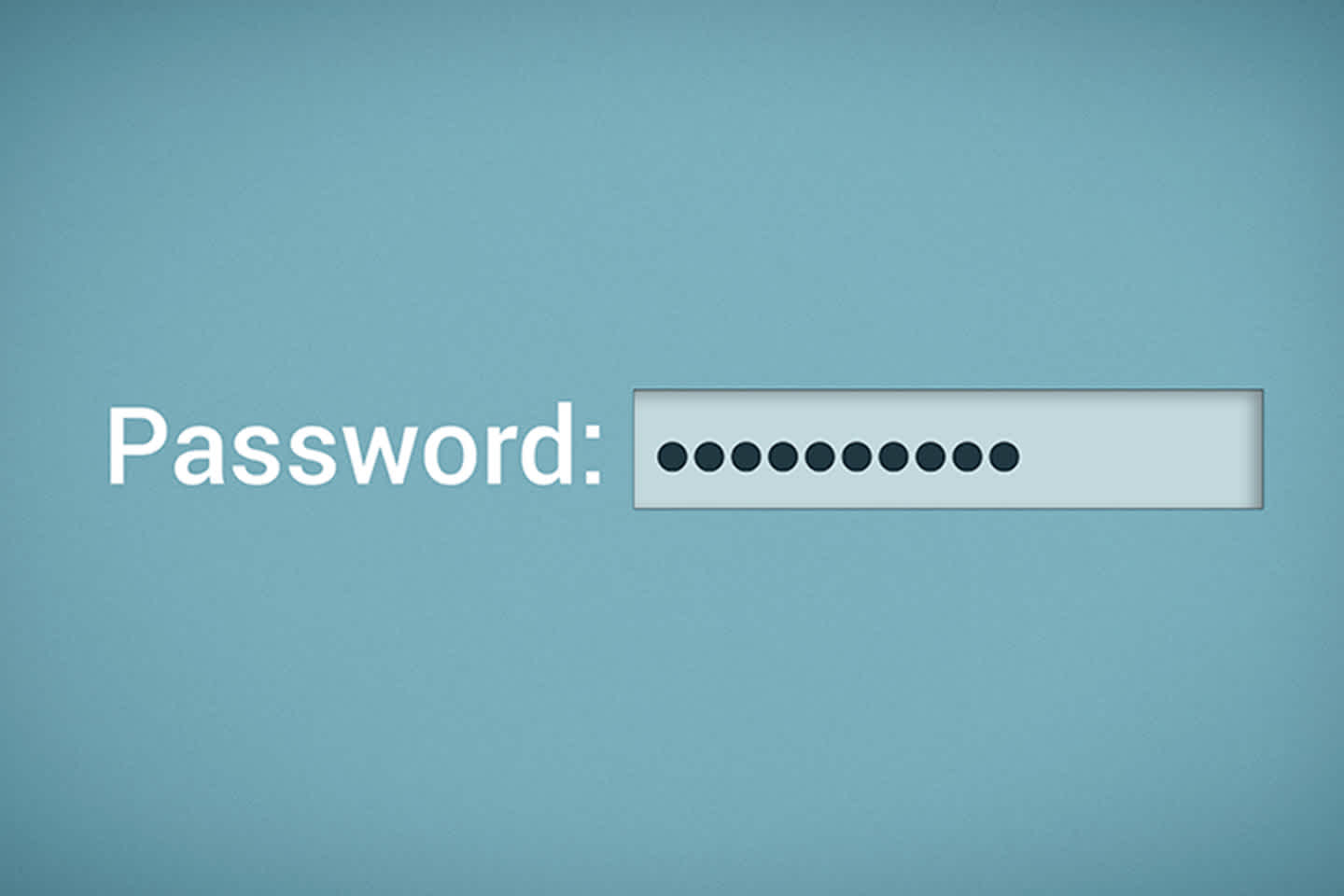12 questions and answers about a lasting power of attorney
Keytrade Bank
keytradebank.be
June 27, 2024
3 minutes to read
1. What is a lasting power of attorney?
A lasting power of attorney allows you to appoint who will take certain actions or decisions on your behalf if you are no longer able or willing to do so yourself. For example, they can pay bills, sign contracts, and sell a home for you. A
lasting power of attorney can be about more than your assets. You can also include decisions about your health and well-being in this document. For example, you can appoint a person(s) who can have access to your medical file or mention which care facility you would like to go to if you are no longer able to express those wishes yourself.
2. Can I 'outsource’ certain actions even if I'm still in perfect mental health?
Yes, a lasting power of attorney is a flexible instrument. Your lasting power of attorney also allows you to have your attorney make specific decisions for you even when you still have mental capacity. Suppose you don't mind doing your online banking, but you find that checking your tax records or choosing the right mobile and broadband plan is too much of an inconvenience for you. In that case, you can specify this in your lasting power of attorney.
3. Is a lasting power of attorney only necessary when I'm older?
No, not at all. We often associate a lasting power of attorney with age-related conditions such as dementia, but it has its uses at any age. Young people can also lose mental capacity temporarily or permanently due to an accident or serious illness. In such situations, a lasting power of attorney ensures that their interests are protected, and important decisions can be made quickly and efficiently without any complicated legal proceedings.
4. Who can I appoint to make decisions for me?
Friends, family, neighbours, a lawyer, a business partner, a colleague, etc. In principle, you can appoint anyone as an attorney. The attorney is the person who is authorised to act on your behalf. Of course, they must be willing to take on that role. You cannot force anyone to be your attorney. Here are some things to consider:
• Only choose an attorney with whom you have a strong and trusting relationship • You can appoint multiple attorneys to take different actions for you
• For some actions, it may be useful to appoint several attorneys, especially for important matters such as the sale of property and gifts. In that case, they can only make those decisions jointly.
• If you opt for several attorneys, you can add to your lasting power of attorney that they must keep each other informed or regularly report to each other.
• Beware of any conflicts of interest. For example, you cannot ask your children to make a gift to themselves in your name. You also cannot ask someone to draw up or amend a will on your behalf.
• It may be useful to appoint replacement attorneys in the event your appointed attorney dies, loses mental capacity or no longer wishes to be your attorney.
5. Do I need to pay the attorney?
No, in principle there is no fee for being an attorney. Of course, you are free to make arrangements in that regard outside of the lasting power of attorney if you want to. You may want to ensure that the attorney is reimbursed for travel and other expenses related to their role as your attorney, for example. It is best to make these arrangements in advance.
6. What actions can a lasting power of attorney include?
There is a wide range of possibilities. Actions can range from simple things such as paying bills and managing the finances of a buy-to-let property to more far-reaching decisions about buying and selling property, concluding and renewing (rental) agreements, managing investments, making and receiving gifts and accepting or rejecting an inheritance.
You can make very specific instructions in your lasting power of attorney. For example, you can state that the attorney may sell the family home, but only once you have reached the age of 85. Or you can add that gifts to the children must not exceed a certain maximum amount.
You can also add certain personal requests to your lasting power of attorney: your choice of doctor, choice of care home, who can have access to your medical file and so on. However, you cannot include any arrangements regarding euthanasia in your lasting power of attorney. A lasting power of attorney is also not a will.
7. When does a lasting power of attorney take effect?
You decide when the lasting power of attorney starts. Many people draw up a lasting power of attorney in such a way that it starts when they no longer have mental capacity or are unable to make or communicate decisions themselves. However, you can also indicate that you want your lasting power of attorney to start immediately, even if you are still able to make and communicate these decisions yourself. In that case, you can still manage your assets yourself and have your attorney take over certain specific tasks.
You can also decide how your mental incapacity is to be determined. This is generally done by two independent physicians, both of whom have to reach the same conclusion.
8. What happens if the attorney oversteps the boundaries?
It isn't always easy to detect when an attorney fails to perform their duties properly or abuses their position. You can therefore include some controls in your lasting power of attorney (see question 4 above). An interested party can also ask the Justice of the Peace to intervene if anything goes wrong with the lasting power of attorney's execution.
There is an alarm bell procedure for this. The Justice of the Peace may then decide that certain tasks can only be carried out with their authorisation or that they will replace the attorney completely.
9. Can I revoke or amend my lasting power of attorney?
Yes, you can revoke or amend your lasting power of attorney at any time for as long as you have the mental capacity to do so. This means you need to be able to make your own decisions and understand their consequences. It is important to communicate any changes or revocation to all parties involved, including the attorneys. This will avoid confusion and ensure your wishes are honoured correctly.
In addition, it is advisable to review your lasting power of attorney periodically, especially following significant changes in your life, such as a development in your health, family situation or financial circumstances. If you evaluate your lasting power of attorney regularly, it will always be up to date and reflect your exact wishes and needs. An attorney can also withdraw from the lasting power of attorney if they no longer can or want to fulfil this role.
10. Suppose I end up in a coma. A year later, I wake up from my coma and regain mental capacity.
The lasting power of attorney starts when you are found to have lost mental capacity. Once you regain mental capacity, the lasting power of attorney will cease to apply immediately, and you can make all your decisions yourself again.
11. Can I draw up a lasting power of attorney myself?
Yes, you can. However, there are some important considerations and obstacles. Although a private deed (a deed drawn up by you without a notary-public) is sufficient in certain cases, it is strongly recommended that you have your notary draw up the deed. This has to do with legal certainty and the complexity of some actions.
A deed drawn up by your notary provides more certainty about the validity and legal force of the lasting power of attorney. The notary ensures that the deed meets all legal requirements and is correctly registered. For certain actions, it is mandatory to have the lasting power of attorney drawn up by a notary: the sale of property, gifts arranged through a notary, changes to a marriage contract, etc.
A notary handles the (mandatory) registration in the Central Register of Mandates. If you have drawn up a lasting power of attorney yourself, you must file it with the Justice of the Peace.
12. What happens if I do not have a lasting power of attorney?
If you have not arranged a lasting power of attorney and you suddenly lose mental capacity, the Justice of the Peace will appoint an administrator following a legal procedure. This may be a family member, but in the event of any conflict, this may also be a lawyer or another suitable person appointed by the court.
The administrator will then make decisions for you under the supervision of the Justice of the Peace. A lasting power of attorney gives you the opportunity to decide who manages your business and under what conditions. Tip: Don't forget to draw up a will that also includes your digital estate.
What is a lasting power of attorney without assets?
Other articles that might interest you
![blogHeader-taxeRent]()
Rental income and taxes: what every landlord should know
![blogHeader-compromis]()
An offer, an option agreement or a contract: ending the confusion
![blogHeader-SchenkingRegistreren]()
Gifting money: register or take the risk?
![blogHeader-USRecession]()
Will there be a recession in the US?
![blogHeader-cruise]()
As cruise companies gather steam, are their shares doing the same?
![blogHeader-RIP]()
Your family member dies: how to manage their banking
![blog-Mag7]()
Have the Magnificent 7 lost their magic?
![blogHeader-GeldLenen]()
Lending money to family or friends: do you have carte blanche?
![blogHeader-kostenAamkoo]()
What costs are involved in buying a home?
![blogHeader-EuropeseBank]()
Are European bank stocks experiencing a renaissance?
![blogHeader-obesity]()
Has the obesity trade peaked?
![blogHeader-DeepSeek]()
How to invest in AI after the DeepSeek bomb
![blogHeader-GeertVanHerc]()
Investors missed out on many great opportunities in 2024
![BlogHeader-FiscaalVeranderingen]()
Dividends, (pension) savings and tax-free income: what's new in 2025
![blog-ouderKoppel]()
40 years of pension savings: what will you spend it on (literally)?
![blog-AstroMars]()
From FOMO to ZERO bank account? 5x pension savings to the rescue
![blogHeader-bestchoicesP]()
Pension savings returns: these choices give the maximum payout
![blogHeader-Lifetime]()
Lifetime pension savings: the sooner you begin, the more you rake in
![blog-DatingApp1]()
What if pension savings were like a dating app?
![blogHeader-mythes]()
Myth busters: 5 myths vs. facts about pension savings
![blogHeader-Pensionsav]()
Pension savings: save the grey hair for later
![blogHeader-VrouwenPensi]()
Why pension planning is even more important for women
![blogHeader-americaFirst]()
United States 1, Everyone Else 0
![blogHeader-renteloos]()
Which loan is the best fit for your renovation project?
![blog-whenInvest]()
When should you start investing? Seven potential key moments in your life
![blogHeader-Fire]()
FIRE: how hot is this financial trend and how does it work?
![blog-EpargeEnfant]()
How can you teach your child to save? 12 tips
![blog-header-pocketMoney]()
Why a child deserves pocket money
![blogHeader-financial in]()
Are there shortcuts to becoming financially independent?
World Cleanup Day
![GraphOfTheWeek]()
A potential worldwide trade war is claiming European victims
![blogHeader-animals]()
Ever thought of investing in the pet industry?
![blogHeader-Password]()
Have a password manager on your cybersecurity checklist yet?
![GraphOfTheWeek]()
Have long-term interest rates once again started a 40-year uptrend?
![blog-header-USElection]()
Democrats or Republicans: which party is better for your investments?
![Fishing per post]()
Scam letters are back (even though they never really went away)
![GraphOfTheWeek]()
Graph of the Week: Magnificent 7 vs 2000s Tech Bubble
![GraphOfTheWeek]()
Investing at new highs is an elevated idea
![untaxed-side-jobs 1913883895]()
Untaxed side jobs: what is allowed and what is not (any more)?
![IT]()
Who's who at Keytrade Bank? Who answers the phone when you call us?
![IT]()
Who's Who? Visiting IT
![student-room 262331855]()
Would it be better to buy a student room than rent one?
![house-flipping 330509387]()
House flipping: is it worthwhile?
![blog-Basisrente]()
Basic interest rate and loyalty bonus: what does your savings behaviour say about you?
![blog-dividentenRe]()
Why high dividend yields can be a poisoned chalice
![blogHeader-RelatieBreuk]()
What happens to the shared home when a relationship breaks down?
![blogHeader-WeinigTijd]()
3 ways to invest when you don't have much time.
![blogHeader-ValseVacatur]()
Watch out for recruitment scams
![blogHeader-ChinaBelegge]()
Is it time to invest in Chinese stocks again?
![blogHeader-fondsKiezen]()
How do you select an investment fund for your child?
![blogHeader-Veilig onlin]()
Secure online banking: how can you protect your finances?
![blogHeader-TauxInteretB]()
Will ultra-low interest rates make a comeback? Probably not…
![blogHeader-S&P500]()
Why the S&P 500 does and does not have a problem
![blogHeader-Robotica]()
Robotics: From science fiction to science
![blogHeader-Vastgoedaand]()
Property shares: ripe for a comeback?
![blog-geldMarktFon]()
Are money market funds an attractive investment?
![blogHeader-HogereRendem]()
Is it the right time to invest in bonds?
![blogHeader-EersteHulp]()
Stock market records: some down-to-earth advice on how to respond to dazzling heights
![blogHeader-PeriodiekBel]()
Have you ever thought about investing for your children?
![blog--Récupérémaxleeftijd]()
Age limit for a mortgage loan: is it true?
![blog-tweedeLening]()
Borrowing for a second home: what are your options?
![blog-compromis]()
From offer to contract: avoid these errors
![blog-romanceScamm]()
Online dating scams: tips to protect yourself
![blog-leningzonder]()
A no-deposit mortgage loan: fact or fiction?
![Blog-VoyageMars]()
How can you invest in space travel?
![Blog-Loan]()
How much can you borrow for a home?
![house-flipping 330509387]()
New in Flanders: interest-free loans for renovations
![shopping-online 1469785070]()
Shopping online: 7 tips and points to consider
![myth-sustainable 1059639044]()
Five myths about sustainable investing
![Blog-Viellissement]()
How can you invest in an ageing population?
![Blog-Vote]()
How do elections affect the stock market?
![blog-holding]()
8 questions and answers about holding companies
![blog-marchéAfrica]()
Nigeria: a new hot spot for adventurous investors?
![Seasons greetings]()
Looking back on 2023
![emerging markets 2]()
Investing in emerging markets: are investment funds a smarter buy than trackers?
![Watch out, danger's about]()
Watch out, danger's about
![blog-DigitalHerit]()
Will AI replace human investment advisers?
![payer sans contact]()
The advantages and disadvantages of contactless payment
![qd code fraude]()
Read this before you scan another QR code
![padel header]()
Good positional play is important!
![inde2]()
Is India the new China?
Which sectors should remain overweight following the latest rate hike?
![KNEWS 2307 Padel]()
Padel has got a new doubles partner with Keytrade Bank
![8 tijdloze regels]()
8 timeless rules for investors
![blog-PID]()
Everything you need to know about the post-intervention file
![blog-DigitalHerit]()
Don't forget to make arrangements for your digital estate
![blog-inequal incomes]()
How to navigate a relationship with lopsided incomes?
![blog-financial conflict]()
Avoiding and dealing with conflicts on financial matters: a guide
![blog-compte join]()
1 account for the both of you? Or separate accounts? Or a combo?
![economy-dip 1912291450]()
What is the difference between a tracker and a fund?
![Visa Platinum on Silvery Background (top block)]()
6 things you need to know about your Keytrade Bank credit card
![keytrade-nature-trail 474489556]()
A Keytrade Bank Nature Trail? Yes, please.
![AchatPensionComp]()
How to buy real estate with your supplementary pension (even though you have not retired yet)
![Product Owner of our Data Department, Damien Hegarty]()
Who's who at Keytrade Bank? Data first
![monetary-policies-brake-stock-market-upturn]()
Is tighter monetary policy acting as a brake on the stock market upturn?
![donate-to-charity 1854854632]()
How can you donate or leave a legacy to a charity?
![close-possible-staff 69329]()
As close as possible to staff
![belgian-traders-american-stock-market-rush-reddit]()
Belgian traders tempted by American stock market rush and Reddit investors
![nervous-stock-market-200days-moving-average 534464629]()
Getting nervous about the stock market? Take a look at the 200-day moving average
![keytrade-nature-trail 474489556]()
A Keytrade Bank Nature Trail? Yes, please.
![green-investing 1324554443]()
With or without the coronavirus: why green investing remains just as relevant as before
![impact-investment 1820196929]()
Impact investing: sustainable investments with that little bit more
![sustainable-investing 1613013514]()
Sustainable investing: what, why and how?
![inflation 2023622432]()
How can you make an investment portfolio inflation-resistant?
![ferrari-syndrome 1945800565]()
How much additional income are you allowed to earn as a pensioner?
![safe-contactless 1931956346]()
CARD STOP has a new number! 078 170 170
![inflation-savings 1051141721]()
This is what the tax authorities know about your money
![vix 1827107540]()
Investing in dividend shares: what to look for?
![inflation 2023622432]()
Hate budgeting? This is your guide to budgeting
![stop-loss 2063917100]()
No group insurance plan? What are the alternatives?
![global-world-index 289143614]()
Can countries go bankrupt?
![math-stock-market 68612446]()
Les plafonds fiscaux pour les années de revenus de 2020 à 2023
![investment-style 2045763443]()
Which investment style and which regions would benefit from renewed growth in interest rates?
![rising-star 441848857]()
Which shares will be the rising stars once interest rates start increasing again?
![financial-health 1414013324]()
10 things you can do within a day to improve your financial health
![co-housing-rules 1613595520]()
Cohousing rules
![baby-on-way 1095110102]()
Baby on the way? Make sure your finances are ready for it, too
![protect-capital-divorce 1644904228]()
How to protect your capital in the event of a divorce
![include-grandchildren-inheritance 1009930174]()
How to include your grandchildren in your inheritance planning: 8 questions and answers
![rising-debt 85866430]()
Rising debt: is it a problem?
![safe-contactless 1931956346]()
How safe are contactless payments?
![capitalisation-or-distribution 562383328]()
Funds and trackers: do you opt for capitalisation or distribution?
![rent-or-buy 1568837434]()
Rent or buy? How to use the price-to-rent ratio
![balance-investment 604545992]()
What do I do to balance my investments?
![share-bank-card 1080072473]()
CARD STOP has a new number! 078 170 170
![talking-family-legacy 1057090253]()
Talking to your family about legacy: how to get started
![stock-vs-brick 1990193171]()
Stock market versus bricks and mortar: 1-0
![society-without-cash 1932714896]()
On the way to a society without cash?
![second-residence 2015005337]()
Buying a second residence: with savings, investments or a loan?
![second-hand-online 571885318]()
A must read for when you spotted a second-hand bargain online
![megatrend 775242391]()
Always have a megatrend in your portfolio
![lazy-marathon 1620359050]()
The lazy marathon investor
![handiest-financial-apps 1008711622]()
The handiest financial apps (and free as well)
![global-world-index 289143614]()
Are you investing really globally with a tracker on a world index?
![end-year-rally 1310382322]()
Are we heading into a year-end rally by the stock markets?
![coronablog 1670847745]()
Coronablog de Geert Van Herck: La panique atteint des sommets… énième épisode
![blended-family 1563671599]()
Blended family: shared savings account or keep things separate?
![tip-password-safe 735137110]()
Tips from an expert: how to keep your passwords safe
![coronablog 1670847745]()
Coronavirus blog by Geert Van Herck: S&P 500 indicates a positive trend
![retirement-pension 2093526529]()
What retirement pension will you get later?
![financial-stress 1740212186]()
How can we cope with financial stress?
![gift-inheritance 1661226916]()
Gift or inheritance: which is the most tax-efficient?
![offer-property 1982828150]()
Making an offer on a property: what should you look out for?
![car-to-bike 1250798269]()
Swapping your car for a bike: how much money could you save?
![ferrari-syndrome 1945800565]()
Afraid of causing Ferrari or hammock syndrome? This is how you can make a gift and stay in control
![trackers-bubble 533763148]()
Are trackers the latest bubble on the financial markets?
![gold 1680311416]()
Going for gold? Gold is apparently going for it.




































































































































